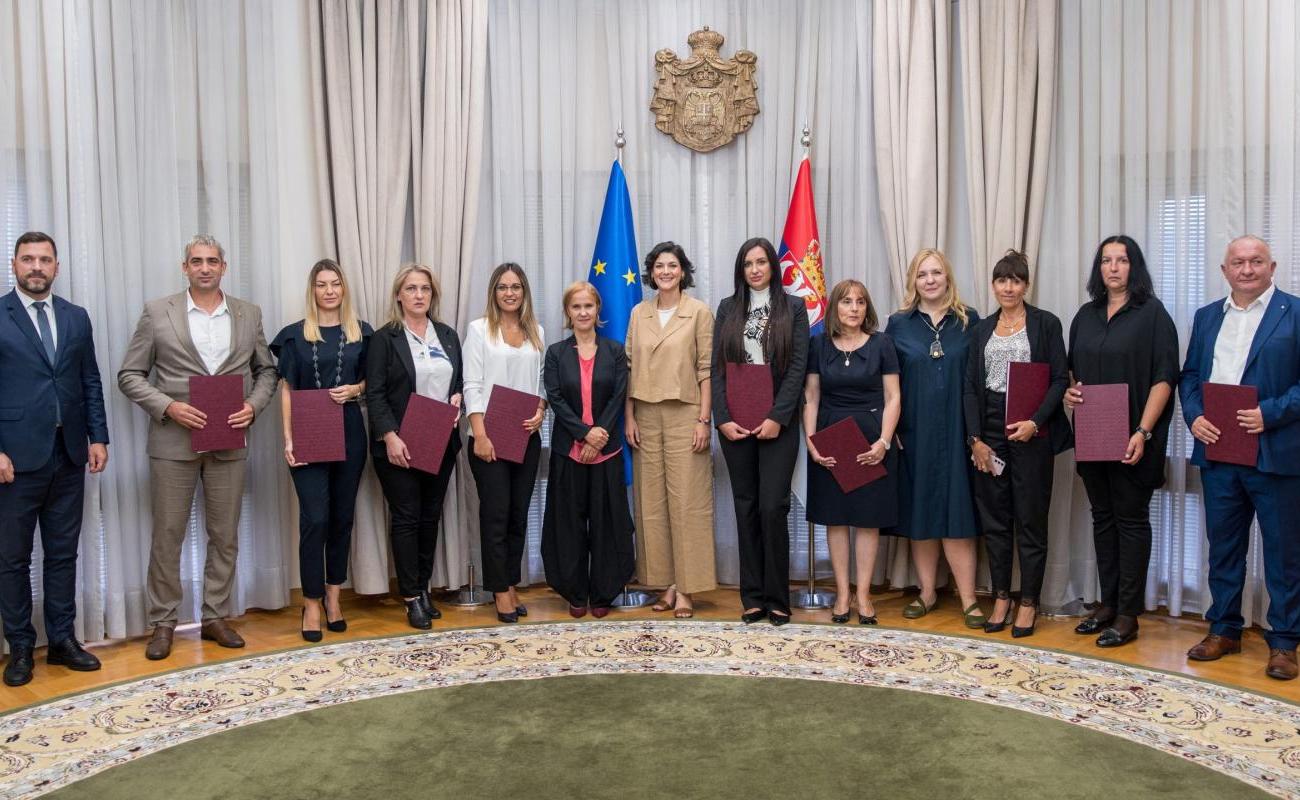Empowering women at the local level – EU support in Serbia

For the third time in a row, the Coordination Body for Gender Equality of the Government of the Republic of Serbia and the United Nations Entity for Gender Equality and the Empowerment of Women (UN Women) in Serbia organized a ceremonial awarding of contracts to local governments as part of the project Support to Priority Actions for Gender Equality in Serbia (Gender Equality Facility – GEF), financed by the European Union.
The contact awarding for projects of nine local governments aimed at improving gender equality was attended by the Deputy Ambassador of the European Union in Serbia, Plamena Halacheva, special adviser to the president of the Coordination Body, Gordana Predić, and Head of the UN Women Office in Serbia, Milana Rikanović.
Kruševac, Zaječar, Užice and the municipalities of Bačka Palanka, Despotovac, Petrovac na Mlavi, Trstenik, Aleksinac and Knić were supported through this project because they “showed readiness and recognized the importance of including a gender perspective in their work plans”.
Deputy EU Ambassador to Serbia Plamena Halacheva said that with today’s awarding of contracts for nine new municipalities, there are now a total of 39 local governments that are actively participating in the Gender Equality Facility.
“I see the complementarity of this action with all programs and activities aimed at improving women’s rights in Serbia and making the entire region fairer and gender equal. The EU will continue to support the authorities at the national and local level, as well as all other advocates of gender equality,” said Halacheva.
Gordana Predić, special adviser to the president of the Coordination Body, said that it is possible to talk about the improvement of gender equality and the better position of women if the policies adopted at the national level are not transferred to the local level.
She added that with the adoption of the Law on Gender Equality, it is the duty of every local government to form local mechanisms for gender equality, in order to achieve a more efficient implementation of the legislative and strategic plan.
This project envisages improving the position of women and supporting local government in the field of gender equality. In the first phase of the project in 2018-2019, a total of twenty local mechanisms for gender equality were supported. During the second phase, in 2022, ten local governments were supported in the implementation of local action plans for gender equality.
The main goal of this aspect of the GEF project is to strengthen the performance of local governments in fulfilling their obligations regarding gender equality through support to the local mechanism for gender equality in the development of Local Action Plans for Gender Equality (LAP GE) and the implementation of one or more activities from the adopted Local Action Plan for Gender Equality.
